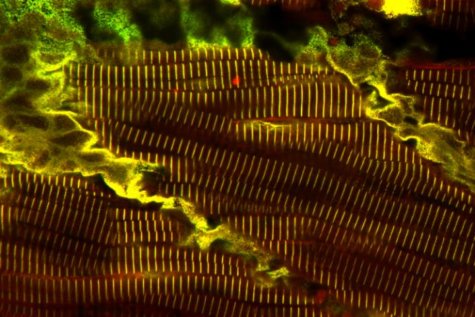New study shows how metformin may help slow the progression of deadly, untreatable neuromuscular disease.
MELBOURNE, Australia — Researchers in Australia are giving families new hope of one day curing a rare genetic disease affecting children. A team from Monash University says the illness is incurable today, but the diabetes drug metformin is finally providing promising results.
Study authors say metformin, commonly prescribed to diabetes patients, removes damaged proteins and prevents muscle disintegration in fish suffering from myofibrillar myopathy. In humans, this genetic disease leads to increasing muscle wasting, impacts muscle function, and causes muscle weakness.

The most severe cases of myofibrillar myopathy are due to a mutation of the BAG3 gene. The deterioration starts to affect children when they’re six to eight-years-old. By the time they’re 25, the disease usually turns fatal as respiratory or cardiac failure sets in.
Associate Professor Robert Bryson-Richardson says repurposing existing medications gave researchers a speedy path to finding a useful treatment. The study leader adds, for rare conditions like myofibrillar myopathy, testing experimental drugs can be difficult. This is due to the few number of people dealing with a disease, limiting clinical trial sizes.
“We have identified metformin as a strong candidate to treat BAG3 myofibrillar myopathy, and also myofibrillar myopathy due to mutations in other genes (we showed similar defects in protein quality control in three other forms) and in cardiomyopathy due to mutations in BAG3,” says the researcher from the School of Biological Sciences at Monash in a media release.
Zebrafish provide the answer again
Study authors used tiny zebrafish to examine how dozens of different drugs would impact the breakdown of muscles and motor function. You may have heard of scientists using zebrafish before and no, it’s not a coincidence. This small freshwater fish is very similar to humans on a molecular, genetic, and cellular level.
They also grow from an egg to a fully formed fish in just five days. This makes them very useful to scientists studying all sort of different health issues in vertebrates, animals with backbones. Using zebrafish, the study finds a defect in the quality of proteins contributes to the severity of the rare disease.
“We tested 75 drugs that promote the removal of damaged proteins in our zebrafish model and identified nine that were effective” explains study first author Dr. Avnika Ruparelia. “Importantly two of these are already approved for human use in other conditions.”
“We found that one of the drugs, metformin, which is normally used to treat diabetes, removed the accumulating damaged protein in the fish, prevented muscle disintegration and restored their swimming ability,” adds Bryson-Richardson.
Alexander’s story
For Alexander Zah-Greenspan, the discovery is giving his parents new optimism a cure may be found in his lifetime. Alexander, born in 2003, has a rare genetic mutation that causes a deadly neuromuscular disease with no treatment or cure. Clinicians using the results of the study have prescribed Alexander metformin to ease the progression of the disease.
“This is a wonderful outcome, as initially we thought that because of the rarity of the mutation, it was unlikely that there would ever be a treatment or therapeutic intervention available,” says Alexander’s mother, Laura Zah. “Compared to previous case studies, the progression of our son’s disease has been slower, likely due to metformin.”
“Given that metformin is taken by millions of people for diabetes and known to be very safe this makes clinical translation highly feasible, and in fact many patients are now taking it,” Bryson-Richardson says.
The study appears in the journal Autophagy.
Like studies? Follow us on Facebook!
